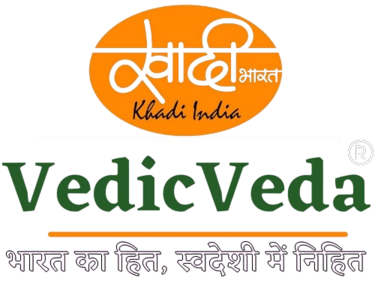How Are Organic Soap Made? Benefits of It
Organic soaps are becoming more and more common as people hunt for all-natural, environmentally responsible alternatives to traditional soaps. To create organic soaps, which are free of harsh chemicals that can be harmful to the environment and human health, natural and organic ingredients are employed. In this article, we’ll examine how organic soaps are made.
Choose Natural Butters and Oils
The first step in making organic soap is choosing the natural oils and butters. These oils and butters, which moisturise and nourish the skin, make up the majority of the soap’s ingredients. Organic soap is frequently made using oils including shea butter, cocoa butter, coconut oil, olive oil, and almond oil.
Blend the Butters and Oils
In a large mixing bowl, combine the oils and butters next. The desired characteristics of the soap will determine the oils and butters to be used. For instance, shea butter is renowned for its moisturising qualities, whilst coconut oil is known for its cleaning ones.
Include lye
Lye is then added to the mixture once the oils and butters have been mixed. A caustic substance called lye is used to initiate a chemical process known as saponification. Oils and lye are mixed during the process of saponification to produce soap.
Mix the Ingredients
The materials must then be well combined. Use a hand mixer or a stick blender to do this. As the mixture undergoes saponification, it will start to thicken.
Include Fragrances and Essential Oils
Essential oils and scents can be added after the mixture reaches a trace, or the point at which the soap mixture leaves a trail on the surface. Depending on the oil, essential oils give forth natural smells and offer different skin-care advantages. Lavender, tea tree, peppermint, and eucalyptus are common essential oils used in the production of organic soap.
Fill the Moulds with the Mixture
Pouring the soap mixture into moulds is the last step. Throughout the following 24 to 48 hours, the soap mixture will continue to solidify. The soap may be taken out of the moulds and cut into bars once it has solidified.
Buy Khadi Herbal Soap
- Lemon Grass Herbal Khadi Glycerin Soap
- Multani Mitti Herbal Khadi Glycerin Soap
- Charcoal Herbal Khadi Glycerin Soap
- Chandan Herbal Khadi Glycerin Soap
- Khus Herbal Khadi Glycerin Soap
- Jasmine Herbal Khadi Glycerin Soap
- Haldi Chandan Khadi Herbal Glycerin Soap
- Strawberry Khadi Herbal Glycerin Soap
- Coconut Herbal Khadi Glycerin Soap
- Lilly Herbal Khadi Glycerin Soap
Benefits of Organic Soap
As more individuals look for natural and eco-friendly alternatives to conventional soap, organic soap has grown in popularity in recent years. Organic soap has several health and environmental advantages since it is made with natural and organic components. The advantages of organic soap will be discussed in this post.
Easy on the Skin
The gentleness of organic soap on the skin is one of its main advantages. Conventional soap frequently contains harsh substances and artificial scents that can irritate and dry up the skin. The substances used to make organic soap, on the other hand, are mild and healthy for the skin.
Chemical-Free
Various chemicals, including parabens, sulphates, and phthalates, which can be bad for the skin and the environment, are frequently found in conventional soap. Contrarily, organic soap is devoid of these harmful substances, making it a safer and better choice for the environment as well as you.
Hydrating
Natural oils and butters, such coconut oil, olive oil, shea butter, and cocoa butter, are used in many organic soaps and nourish and hydrate the skin. Without the use of artificial moisturisers, these substances assist to maintain the skin soft, smooth, and moisturised.
In many cases, organic soap is more ecologically friendly than regular soap. In order to avoid using synthetic chemicals that are harmful to the environment, producers of organic soap frequently utilise components that are sourced sustainably. Additionally, a lot of producers of organic soap utilise biodegradable packaging, which minimises waste and encourages sustainability.
Organic Fragrances
Natural scents like essential oils, which have several skin-friendly properties and produce a pleasant perfume, are frequently used in organic soap. Essential oils are a safer and healthier solution for you and the environment since they are all-natural and devoid of synthetic scents.
All Skin Types Suitable
All skin types, even sensitive skin, can use organic soap. Compared to conventional soap, a lot of organic soaps employ mild, natural chemicals that are less prone to irritate skin or trigger allergic responses.
Improves Skin Health
Making use of organic soap will help to support healthy skin. The harsh chemicals that can harm the skin and cause dryness, irritation, or inflammation are absent from organic soap. Instead, using organic soap nourishes and hydrates the skin, keeping it young-looking and healthy.
FAQ
Can Sensitive Skin Use Organic Soap?
A: Yes, including sensitive skin, organic soap is safe for all skin types. Compared to conventional soap, a lot of organic soaps employ mild, natural chemicals that are less prone to irritate skin or trigger allergic responses.
Can Organic Soap Treat Skin Disorders like Psoriasis or Eczema?
A: Since organic soap is devoid of harsh chemicals that could aggravate skin disorders like eczema or psoriasis, it might be helpful in treating them. Before using any new items to skin that is afflicted by a skin issue, it is crucial to get medical advice.
What Environmental Advantages Come with Using Organic Soap?
A: Organic soap is frequently more eco-friendly than regular soap, yes. In order to avoid using synthetic chemicals that are harmful to the environment, producers of organic soap frequently utilise components that are sourced sustainably. Additionally, a lot of producers of organic soap utilise biodegradable packaging, which minimises waste and encourages sustainability.
How Can I Locate Organic Soap?
A: Many natural beauty shops, online businesses, and health food stores carry organic soap. Look for goods that are manufactured with natural and organic materials and are certified as organic.

